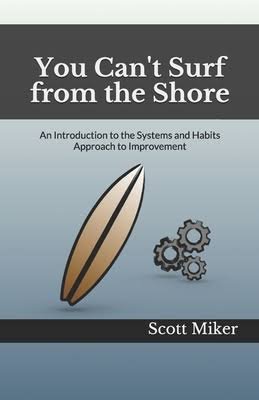Books
Scott Miker is the leading expert on system and habit development. His books provide insight into how to transform your life and accomplish your goals.
You Can't Surf from the Shore: An Introduction to the Systems and Habits Approach to Improvement
Edition 2
The systems and habits in life are powerful. Standing at the edge of the ocean, holding the surfboard, was my opportunity to break through those systems. I could either take the plunge and fulfill a dream, or I could let my fearful ego run the show. It was my choice to own.
We take for granted the systems that drive our life. But they determine who we are and what we become. Learning to observe them, own them and direct them is the key to becoming the person we dream about becoming.
You Can’t Surf from the Shore guides the reader through the journey of systems improvement. Then, the reader is encouraged to start designing those systems. They are urged to take an active role in deciding what they want. They learn how to change their current lifestyle to reach their highest ambitions. Those systems in our life hold the power to change, improve, and grow. You Can't Surf from the Shore teaches us how to master them.
